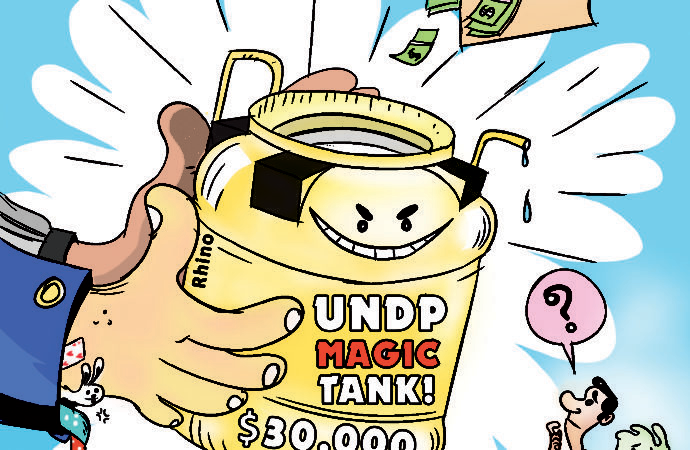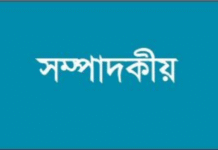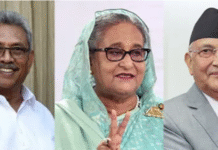Bangladesh has lost $67 million dollars in climate adaptation funding because the Bangladeshi and United Nations Development Program officials charged with getting the proposal approved ignored objections raised by fund managers.
Those with knowledge of the proposal process told the Dhaka Tribune that one Bangladeshi official’s desire for a career legacy and an Australian UNDP consultant’s personal whimsy contributed to poorly managed funding negotiations.
Instead of heeding warnings from the UN’s Green Climate Fund (GCF) that the proposal, as it stood, would be shelved, Economic Relations Division (ERD) and UNDP officials attempted to railroad the proposal anyway.
The Dhaka Tribune has learned that UN officials asked Bangladesh on the sidelines of a GCF board meeting last December in Samoa to withdraw the project or risk having it rejected formally.
An independent panel of experts for the GCF expressed strong reservations about the model of water collection and distribution, and sustainability of the rainwater harvesting project. The project was intended to enhance climate adaptation for women and girls.
The enormity of the proposal’s flaws is captured in this observation by the independent evaluators: “ … there is no indication whatsoever of how rainwater is going to be collected in the harvesting tanks.”
They said that the proposed tanks would not capture or harvest rainwater but only store it.
According to insiders, GCF experts had unofficially communicated with both the ERD, which is the quality control gatekeeper of all such project proposals, and the UNDP, which initiated the project, explaining that the project was conceptually weak and had glaring deficiencies.
But the UNDP, the project’s initiator, pushed hard to get Bangladesh’s designated authority, the ERD, to go ahead with the proposal without addressing the deficiencies that experts had pointed out.
Neither agency withdrew the bid.
The GCF rejected Bangladesh’s application for funds.
The same meeting in the small island nation saw the GCF approve eight other projects worth $315 million.
Colossal miscalculations
Despite failing to explain how rainwater would be harvested, the proposal had big plans for storage. Very big.
The project envisaged that each of the proposed 1,350 rainwater collection tanks, to be set up at 450 points in six coastal districts, would measure 2,000 square metres, roughly 21,527 square feet.
That is roughly one-third the size of a football field.
The independent evaluators wondered where such massive buildings would be found in coastal Bangladesh.
A UNDP representative present at the GCF board meeting was given a chance to respond to queries which experts had earlier put forth. Instead, the official reiterated the project’s supposed merits.
A video of the proceedings, obtained by the Dhaka Tribune, shows the UNDP representative evading questions raised by the GCF board.
Plum plumbing
The most glaring oddity in the proposal was the singling out of an Australian brand of water tanks – Rhino – for the projects.
The UNDP reportedly told evaluators that Rhino was the only brand that presented cost estimates — $30,000 for each tank.
Evaluators said there was “no reason for having just one brand name of tanks specified.”
“Water storage tanks have existed for millennia. There are hundreds of suppliers of water tanks, dozens of suppliers of UV disinfection and water filters.
“The specifications for the equipment proposed is written in such a way that makes it look like only the company Rhino could provide it,” the independent evaluators observed.
Insiders told the Dhaka Tribune that Rhino was the brand used at home by Australian national and UNDP Bangkok consultant Peter Wolf, who has ties to the project.
They claimed that Wolf was largely behind this push to get the proposal approved despite the warning bells.
Climate finance analyst M Zakir Hossain Khan said the specification of a single water tank brand was a clear indicator of corruption.
Like bridges to nowhere
Having failed to explain how rainwater would be harvested, the proposal went on to omit estimations of the cost of transporting water from the collection point to peripheral storage tanks, and from the storage tanks to beneficiaries.
“Second, the proposal contains no indication of how the potential users are going to access the water stored in these ‘rain harvest’ tanks,” the independent evaluators said.
They asked whether the water would be transported to homes or whether women would be required to walk to the tanks.
They pointed out that the proposed project had not made any allocation for the operation and maintenance of the roofs, rainwater conveyance system, tanks, filters or ultraviolet disinfection.
And yet the proposal claimed the project would benefit up to 3 million people with a steady supply of drinking water and 40,000 women through direct cash transfers.
“We do not have the capacity to evaluate these projects”
The Dhaka Tribune was not able to contact the ERD chief, Senior Secretary Mohammad Mejbahuddin, who gives the final green signal for all GCF proposals.
According to those with knowledge of the process, Mejbahuddin, who very recently retired, is reported to have said in the face of criticism about the project, that he wanted to see a substantial project go through before he left.
His desire to claim credit for a major project has been one of the reasons to promote the flawed project, insiders claimed.
His top aide, Deputy Secretary Iftekhar Hossain, said his office did not have the expertise to fully assess each project that came through. “We do not have the capacity to actually evaluate these projects.”
The project proposal’s focal point, UNDP Dhaka official AKM Mamunur Rashid, claimed the UNDP had already responded to queries.
He offered no new response to the deficiencies raised in the independent evaluators’ observations.
As to speculation about Peter Wolf’s role in the loss of the funding, he declined to comment.
Saleemul Huq, director of the International Centre for Climate Change and Development, said the political economy of developed country relations with developing countries had a role to play in the failure of the project’s approval.
But he added: “The project was in fact weakly formulated and should have been more robust.”
Ainun Nishat, a climate negotiator for Bangladesh and a long-time insider of numerous environmental projects, expressed dissatisfaction with the project. “The people who developed this project should have been more accountable.”
Source: Dhaka Tribune










